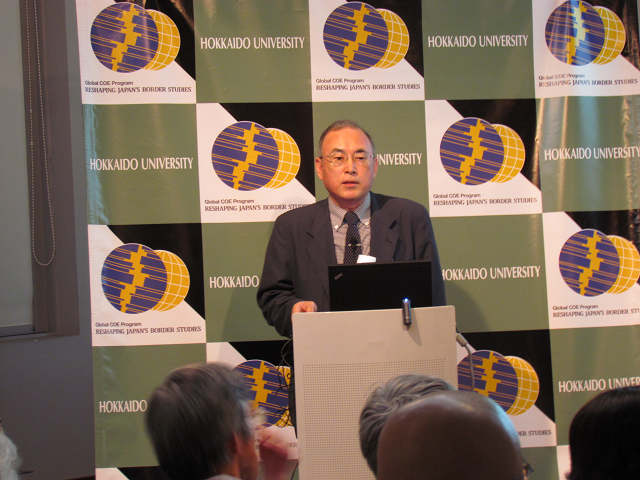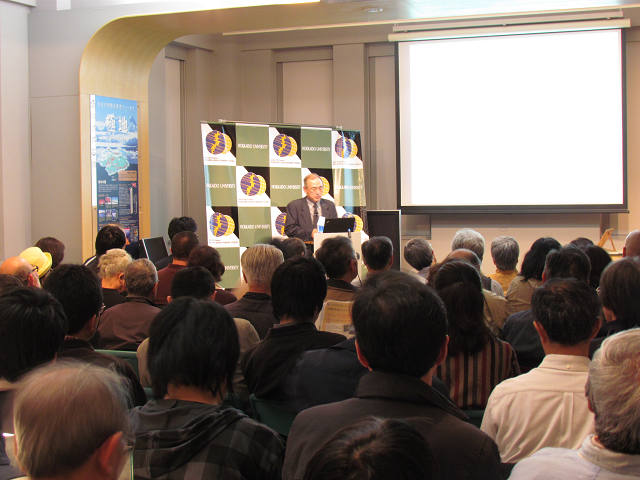
The outreach seminar, °∆Russian Literature and Borders°«, ends with a flourish
2011/05/21
On the 21st of May, the Global COE held an outreach seminar for the general public entitled °∆Russian Literature and Borders°«, the first event of the fifth exhibition to be held at Hokkaido University°«s Museum.
In his talk, Tetsuo Mochizuki emphasized that to move around a Russian Empire of commingled landscapes, cultures, ethnicities and classes was itself to experience borders. Professor Mochizuki first introduced the diversity of nature and peoples in the Empire and the history of Russian expansion, before turning his attention to how the personal border
experiences of Dostoevsky and Tolstoy impacted on their work.
In Dostoevsky°«s case, his Siberian exile exposed him to the borders between diverse peoples, religions, status°« and views, and also that between the mundane and the terrible, the theme of °∆The House of the Dead°…. Tolstoy°«s work reflected stratified boundaries within the Cossacks that he had seen while serving on the Caucasian front.
Despite the terrible weather, close to 80 people came to the seminar and heard about °∆literature and borders°«.


In his talk, Tetsuo Mochizuki emphasized that to move around a Russian Empire of commingled landscapes, cultures, ethnicities and classes was itself to experience borders. Professor Mochizuki first introduced the diversity of nature and peoples in the Empire and the history of Russian expansion, before turning his attention to how the personal border
experiences of Dostoevsky and Tolstoy impacted on their work.
In Dostoevsky°«s case, his Siberian exile exposed him to the borders between diverse peoples, religions, status°« and views, and also that between the mundane and the terrible, the theme of °∆The House of the Dead°…. Tolstoy°«s work reflected stratified boundaries within the Cossacks that he had seen while serving on the Caucasian front.
Despite the terrible weather, close to 80 people came to the seminar and heard about °∆literature and borders°«.








